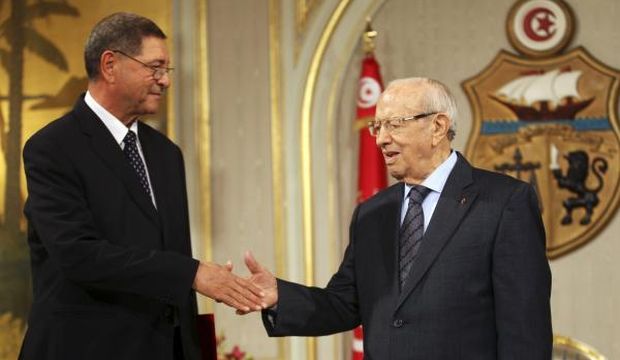
Tunisia’s President Beji Caid Essebsi (R) shakes hands with newly nominated Prime Minister Habib Essid in Tunis. (Reuters)
The nominee, Habib Essid, worked in the government of autocrat Zine El-Abidine Ben Ali but was also interior minister after the 2011 revolution that ended Ben Ali’s one-party rule and forced him into exile.
His nomination follows the election of Beji Caid Essebsi, also a former Ben Ali minister, as president. Essebi’s secular Nidaa Tounes party holds the most seats in the new parliament.
“We have chosen Essid because he is independent and has experience in the areas of security and the economy,” Nacer told reporters outside the congressional palace.
He will now appoint a government that must then be approved by a vote in the parliament.
Tunisia has been praised as a model for its transition to democracy and its new constitution and free elections held since the 2011 uprising. The North African state has mostly avoided the political strife faced by other Arab Spring nations.
Essid, a US-educated agricultural economist, joins other former government officials making a comeback though the ballot box after parliamentary and presidential elections since October that were the final steps to full democracy. Critics worry their return is a setback for the 2011 revolution.
President Essebsi promises to govern for all Tunisians and says he has the technocrat background to manage security and economic challenges.
